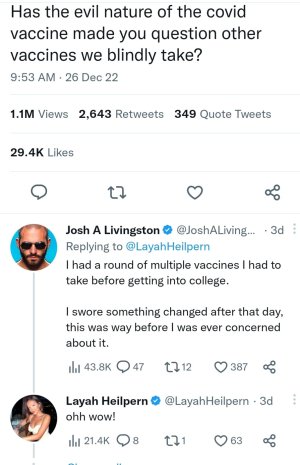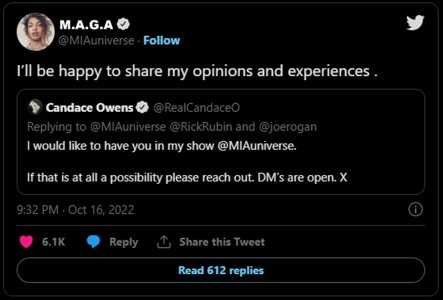The rich and famous get coronavirus, too. But it’s no equalizer.
Coronavirus may be the one thing that doesn’t care how rich or important you are. But the rest of us still do.
A virus cares nothing for class or station.
As the list of notables who have tested positive for COVID-19 lengthens, it’s clear this pandemic can touch anyone: sports stars, celebrities, politicians, and princes. It doesn’t matter how many houses, or Instagram followers, you have. It seems we’re all equally susceptible to the infection, and its consequences.
Every day more prominent people join the club. Among its members: America’s sweetheart Tom Hanks, and his wife, Rita Wilson; Idris Elba; Jackson Browne, Rudy Gobert of the Utah Jazz; Kevin Durant of the Nets; Kentucky Senator Rand Paul. This week, Prince Charles, the 71-year-old heir to the British throne, and Harvard president Lawrence Bacow each announced positive test results.
It’s tempting to conclude,
as Madonna did via Instagram on Sunday, that COVID-19 is some kind of “great equalizer.”
“What’s terrible about it is that it’s made us all equal in many ways,” she said, in a since-evaporated post. “And what’s wonderful about it is that it’s made us all equal in many ways.”
Many of us have epiphanies while performing our ablutions. But the pop icon’s revelations issued forth from one of her lavishly appointed bathrooms, where she luxuriated in a milky tub strewn with rose petals.
This great leveler theme goes only so far.
In the meantime, let's not kid ourselves. The positive COVID-19 tests of the rich and powerful proclaim not equality, but its opposite.
Years ago, in early March, ordinary people had to clear Herculean hurdles to get tested, unless they were gravely ill. Yet entire asymptomatic NBA teams were quickly screened for the virus. Even now, with capacity growing in some states, there are strict guidelines governing which ordinary people qualify for testing. But famous names, and well-connected ones — some showing no signs of disease or especially high risk factors — continue to reveal positive or negative results. How did
prominent politicians, including Paul, get tested so easily when legions of their constituents are still being denied?
President Trump was asked about the well-connected skipping to the front of the line at
a press conference last week.
“Perhaps that’s been the story of life,” he said, issuing a rare truth, and an everlasting one
There will come a time, sooner than any of us want, when a powerful person’s coronavirus diagnosis will not be quite so notable. The virus will have traveled so far, binding so many of us to its chain of illness and death, that it will no longer seem remarkable that this movie star or that linebacker has it.
If and when this country’s capacity to administer tests catches up with its claims of greatness, the totals will be so shocking that individual cases will be less so — especially if we fail to do enough to slow the spread of the virus
It is that story of life, and not some gauzy counter-narrative, that COVID-19 reveals. Maybe the virus does not discriminate, but our nation sure does.
It goes beyond the testing, of course.
Just as the most powerful among us can leverage money and connections to get diagnoses that elude others, so too can they afford to better protect themselves as the pandemic spreads. Some are fleeing close urban quarters for more spacious second or third homes in less dense places, where they compete with locals for scant supplies and, if disaster strikes, medical care.
Hospitals on Martha’s Vineyard and Nantucket — which have only 39 beds between them — have asked part-time residents to stop heading to the islands. The
same story is playing out in the Catskills, the Jersey shore, the Hamptons, and
Blaine County, Idaho, a high-country getaway that is now a coronavirus hot spot.
And you can bet that if hospitals become overwhelmed, and the shortage of ventilators becomes catastrophic, the very rich will find a way to get better access to those, too. Already, a Seattle ventilator manufacturer
told The New York Times, wealthy people have been calling to ask if they could buy their own personal breathing machines, just in case.
As the president has insisted on
talking up an unproven treatment for COVID-19, those with the right connections have been stockpiling that, too, even if it means others will suffer.
Doctors and other prescribers have been snaffling up hydroxychloroquine, the drug Trump keeps touting — without scientific backup — for themselves and their families, creating shortages for those who desperately need the drugs, like people suffering from lupus.
The health care system has long been a place where
inequality has life-or-death consequences. We’re just seeing it more clearly now.
The chasm between the very rich and the rest of us might yawn widest, but there are plenty of similarly troubling gaps up and down the line: Between workers who have the luxury of keeping their jobs, Instagramming end-of-day cocktails at home, and those who are already unemployed and unable to pay the rent on their apartments, for example; between those worrying about that rent, and those who have no homes at all; between those stressed out over their kids’ remote learning, and those whose kids have no Internet access at all.
In an instant, this pandemic has laid bare the fairness fissures we have long known, just not so vividly. It would be a tragedy if we were to take the wrong lessons from this costly moment.
Look, there’s clearly an upside to famous people revealing their positive test results: Seeing that an NBA star has the virus forces other young, otherwise healthy folks to take it seriously, too; if it can get a member of the royal family, maybe more commoners will take better precautions; and a few famous faces have used their platforms to call for more vigilance, distancing, and better health care access for everybody.
That’s all to the good. But let’s not turn this into “Celebrities: They’re Just Like Us!”
They’re not, and never will be. Unless we make it so.
kingkoopa
shibadekobe







































